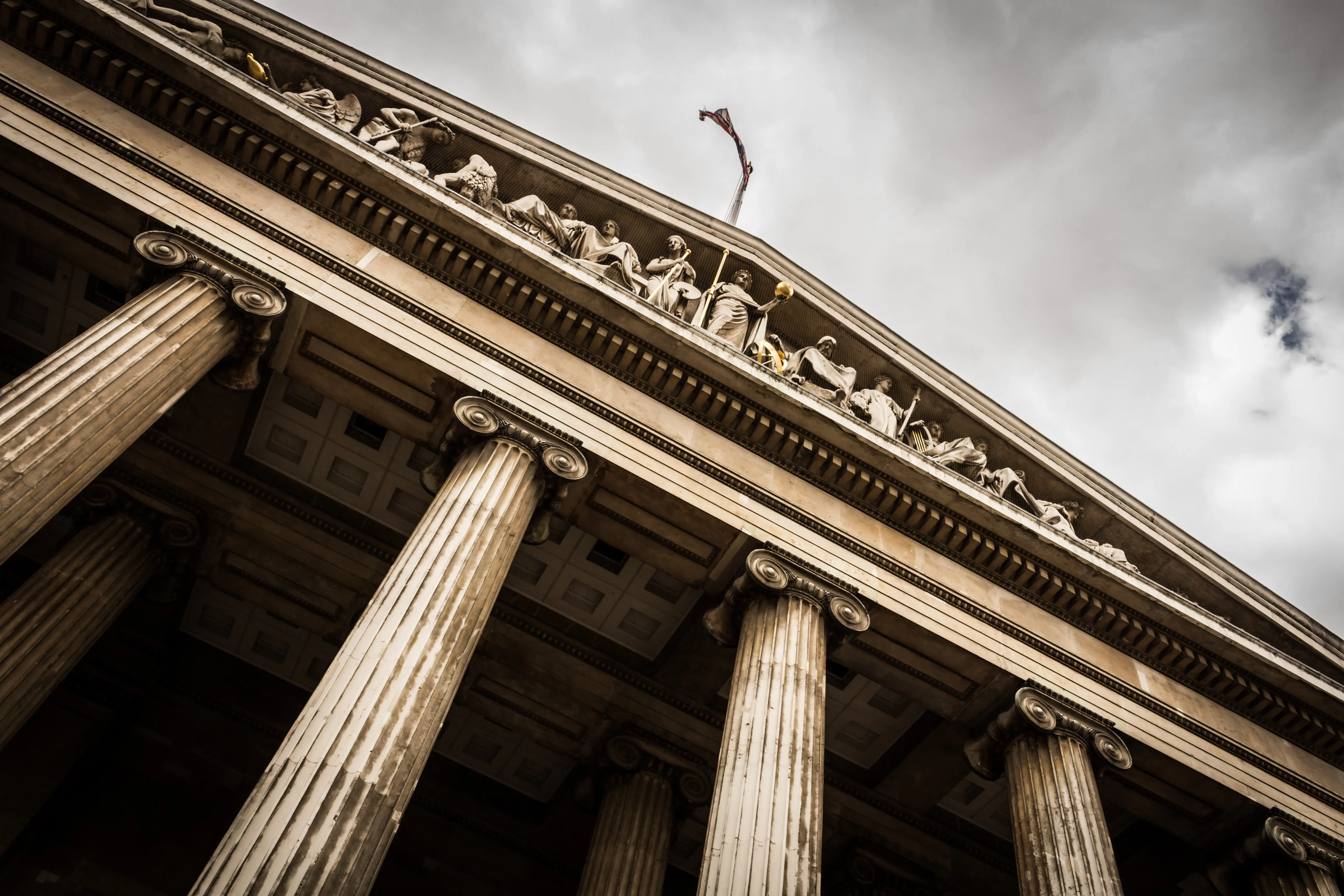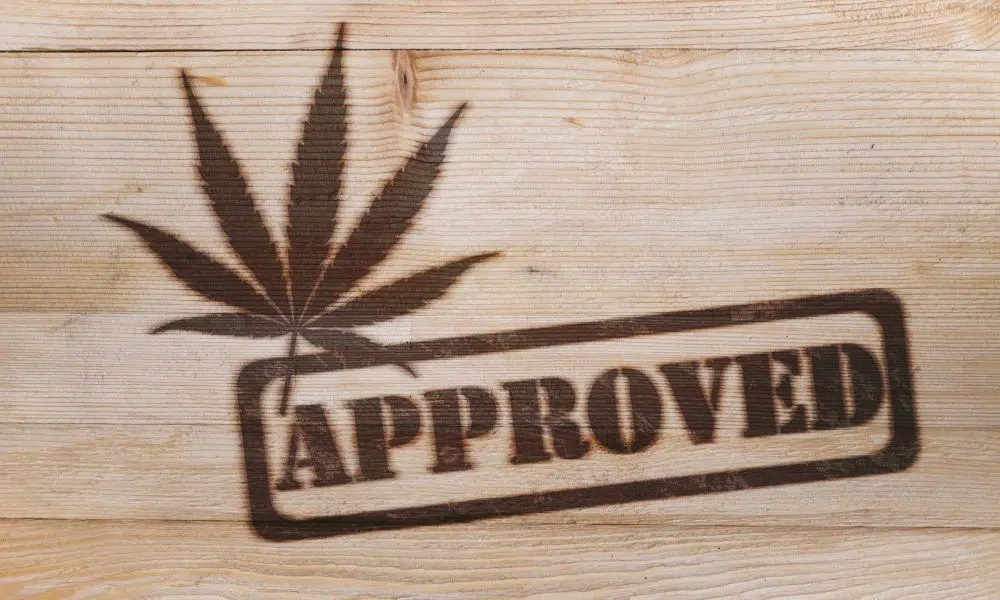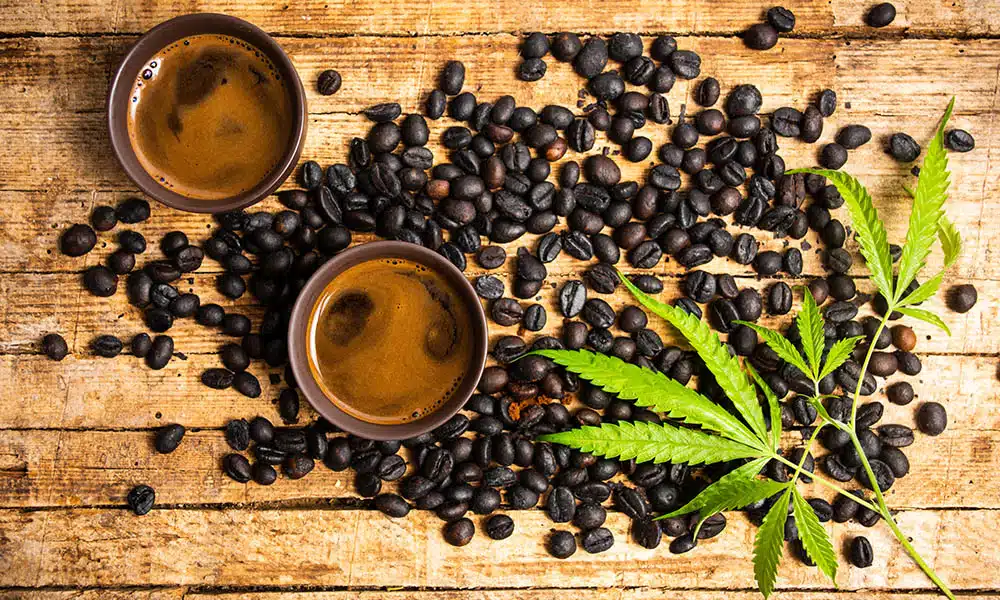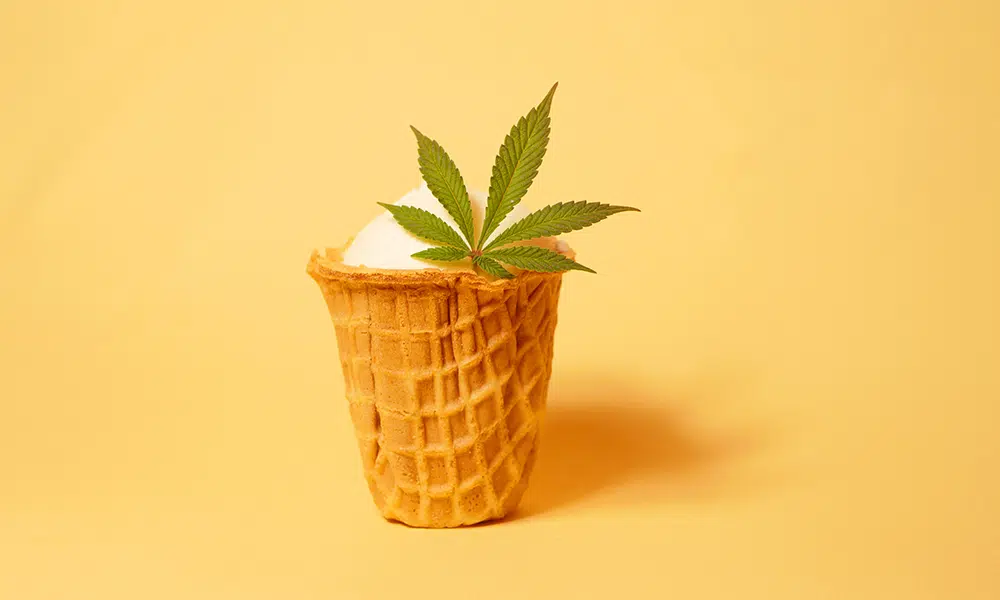Cannabis is one of the most popular commodities of recent times. This industry is particularly new, given that just a few years ago, it used to be illegal almost everywhere. Even though medical marijuana has enjoyed partial acceptance for a while, that was not at all the case with recreational cannabis. Over the last few years, a number of laws were passed that made it possible for cannabis to be deregulated in several states. As a result, cannabis has enjoyed increasing acceptance among the general public.
Nonetheless, this situation does not entirely apply to the overall legislation concerning cannabis. The legal status of marijuana has been surrounded by uncertainty ever since its many presentations have started to reach legalization. Campaigns in favor of marijuana becoming legal are more common each day in all states across the US where it’s still forbidden, without this influencing the stance of federal administrations. Just because recreational marijuana is legal at state-level, on the other hand, it doesn’t necessarily mean that it is free of restrictions at county and city levels. People often get these stances mixed up, which may result in their receiving legal sanctions.
It is true that marijuana legislation appears to be growing more accepting of the commodity. But, could this also happen at the federal level? Let’s not forget that, the greater the rate at which the industry seems to be growing, the more compelled authorities will feel to grant private cannabis use legal status. We should keep in mind that cannabis use is as much a part of a lifestyle choice as it is a reminder of individual liberty. Having said that, let’s examine how cannabis continues to be regulated at the federal level in the US.
What Is The Federal Classification For Cannabis?
Perhaps the harshest and least flexible form of cannabis regulation takes place at the federal level. This stance has barely changed a bit ever since it declared all forms of marijuana use, exchanging and distribution illegal in the 1930s. It also classifies marijuana as a Schedule I drug, which means that, at the federal level, it remains completely forbidden and it is still deemed unsafe. It should be noted that, at the federal stance, laws are supposed to encompass the collective legislative stances of all individual states. So, in that regard, it makes sense that federal marijuana legislation would be so stern, considering that it represents the majority of states where cannabis is still illegal.
Federal legislation considers marijuana to be very addictive, besides having no medical benefits of its own. This is especially downgrading for the many doctors and professionals of the cannabis industry who have been researching the beneficial effects of endocannabinoids for years, and who have come up with truly groundbreaking results. By omitting the benefits brought about by components such as CBD and THC, which have resulted in numerous small industries of their own, federal legislation appears to give up on re-considering cannabis legalization. When bearing in mind how federal regulation seems to ignore the results of these studies, the medical professionals who take on these researchers tend to protest and voice their claims before the government.
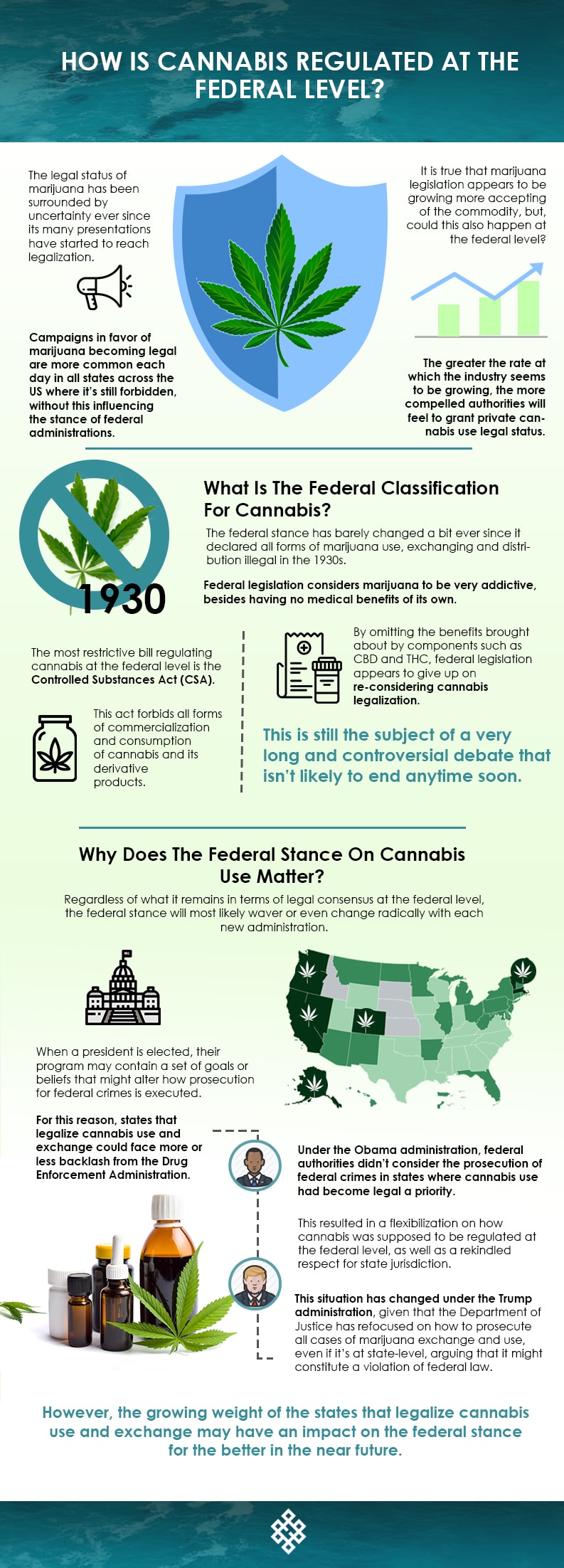
One of the most restrictive bills regulating cannabis at the federal level is the Controlled Substances Act (CSA). This bill considers cannabis and all its derivatives to be illegal, in the same group of addictive drugs as cocaine and heroin. This act forbids all forms of commercialization and consumption of cannabis and its derivative products. The CSA also authorizes all agencies and authorities regulating cannabis to prosecute people for distribution, possession and use. This means that, in states where cannabis is still considered illegal, those who trade in cannabis-related commodities will not only break state law, but they will be committing federal crimes as well. Furthermore, there are lawyers who believe that federal agencies can rightfully prosecute someone for committing a federal crime in a state where that behavior doesn’t constitute a crime at all. So far, institutions at the federal level have been reluctant to pursue this case, and one can see why, since it would violate state laws and create a major problem. This is still the subject of a very long and controversial debate that isn’t likely to end anytime soon.
Why Does The Federal Stance On Cannabis Use Matter?
The federal stance on an issue is the nationwide legislation that represents the central institutions of the United States. We just examined how cannabis is classified at the federal level to this day. However, regardless of what it remains in terms of legal consensus at the federal level, the federal stance will most likely waver or even change radically with each new administration. When a president is elected, their program may contain a set of goals or beliefs that might alter how prosecution for federal crimes is executed. For this reason, states that legalize cannabis use and exchange could face more or less backlash from the Drug Enforcement Administration.
Under the Obama administration, federal authorities didn’t consider the prosecution of federal crimes in states where cannabis use had become legal a priority. This resulted in a flexibilization on how cannabis was supposed to be regulated at the federal level, as well as a rekindled respect for state jurisdiction. This situation has changed under the Trump administration, given that the Department of Justice has refocused on how to prosecute all cases of marijuana exchange and use, even if it’s at state-level, arguing that it might constitute a violation of federal law.
Hypothetically, the CSA could rule that many activities that are related to cannabis are a violation of federal cannabis regulation. It can even go as far as attempting to prosecute a janitor just for working at a dispensary. However, this doesn’t mean that agencies are willing to pursue this line of thought. The cannabis lobbies pushing for its widespread legalization are growing in numbers and strength. There is a chance that most, if not all, forms of cannabis will be legalized at the federal level before any federal stances seek to interfere with local state legislation.
All things considered, federal regulation of the cannabis industry is still pretty unflinching. However, the growing weight of the states that legalize cannabis use and exchange may have an impact on the federal stance for the better in the near future.

